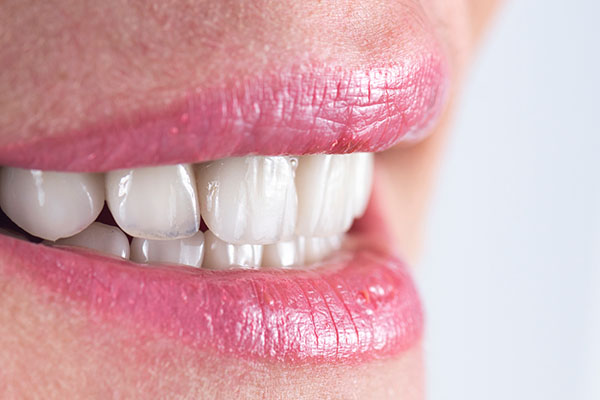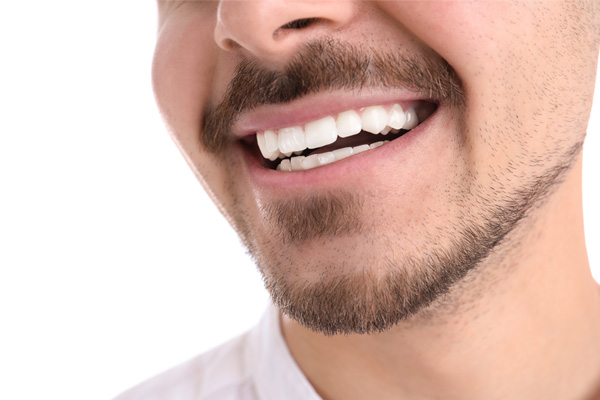 Dental veneers are common restorations that are used to change the size, shape, or color of teeth. These can be made of porcelain or resin and are most commonly used on the front teeth. When these restorations are placed, there is a margin between the tooth and the porcelain or resin material. This can leave a vulnerable spot for a cavity to form. However, dental decay is largely preventable. Patients should consider these ways to prevent recurrent decay around dental restorations.
Dental veneers are common restorations that are used to change the size, shape, or color of teeth. These can be made of porcelain or resin and are most commonly used on the front teeth. When these restorations are placed, there is a margin between the tooth and the porcelain or resin material. This can leave a vulnerable spot for a cavity to form. However, dental decay is largely preventable. Patients should consider these ways to prevent recurrent decay around dental restorations.
Strategies for preventing cavities under veneers
Because dental restorations can be a reservoir for plaque, most require some level of special care. Before choosing a cosmetic treatment such as veneers, a patient must be willing to commit to caring for them.
Routine dental X-rays
X-rays are a valuable tool for dentists. They allow the provider to see what is going on beneath the surface. Often, dentists can first detect decay around a veneer on an X-ray taken at a routine dental appointment. A dark shadow around the margin of the restoration is typically the first sign that extra attention is needed. If caught in the early stages, treatment may be less invasive. X-rays should be taken regularly, and the specific schedule is based on a patient's needs. Those with veneers may need X-rays more often.
Good oral hygiene habits
While brushing and flossing are important for everyone, they are especially crucial habits for people who have veneers. Because the margin of the restoration is vulnerable to decay, extra care must be taken to keep it clean. Patients should be brushing after every meal or a minimum of twice daily. Because dental decay often begins between the teeth, flossing is an important habit for all patients. It matters more when restorations like veneers are present. Oral hygiene aids like mouthwash and a water flosser can also be used to keep the mouth plaque-free.
Diet changes
Most patients know that sugary foods are a common culprit in cavity formation. However, many do not realize that the texture of food can be equally important. Sticky foods can be detrimental around the margins of veneers. As the food breaks down, sugar and acid are released on the tooth. Patients should choose foods that do not leave a residue or film. Drinking sugary beverages is also detrimental to dental health, as the mouth is being exposed to an acidic liquid.
Conclusion
Dental veneers can completely transform a patient's smile. One may feel more confident smiling after having these restorations placed and feel better about themself in general. However, to keep a beautiful smile, special care must be taken. Patients must be aware of the commitment required to keep veneers looking great. Before beginning the procedure, the patient and dentist should discuss how to keep the teeth under veneers healthy. In this way, the patient can enjoy the benefits of these restorations for years to come.
Request an appointment or call Thanasas Family Dental Care at 248-260-2878 for an appointment in our Troy office.
Recent Posts
With appropriate care, dental veneers can continue to cover up minor flaws in your teeth for over 10 years. A dentist may recommend veneers if you have an otherwise healthy tooth that is: Permanently stained or discolored Chipped Cracked Unevenly sized or shaped Spaced too far apart from adjacent teethDuring the procedure, a minimal amount…
You can cover up imperfections in your teeth with dental veneers, thin shells of porcelain that fit over your teeth, and bond to them. Veneers can last for at least a decade, but they typically need to be replaced occasionally if a dentist must treat underlying tooth decay or gum disease. Veneers can also stain;…
Dental veneers are a popular cosmetic treatment solution in smile makeovers. This is because they can address a range of cosmetic and oral health issues, such as teeth stains, misshapen teeth, uneven teeth, chips, and cracks. This review highlights how a dentist might utilize dental veneers during the smile makeover treatment process. Dental veneers are a…


